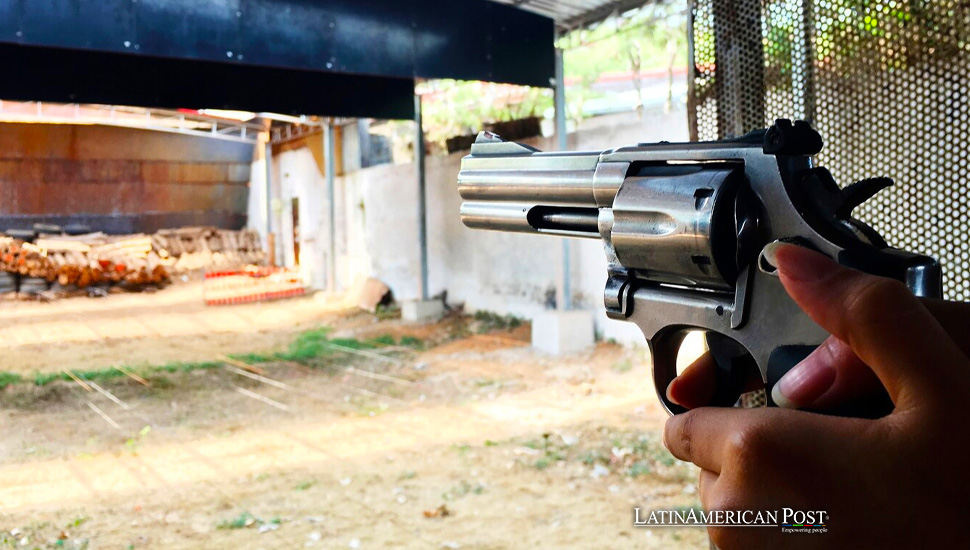U.S. Court Reinstates Mexico’s $10 Billion Lawsuit Against Gun Makers

A U.S. appeals court has revitalized Mexico’s $10 billion lawsuit, challenging major American gun manufacturers for allegedly fueling arms trafficking to Mexican drug cartels.
Landmark Decision Revives $10 Billion Lawsuit
In a landmark decision, the 1st U.S. Circuit Court of Appeals in Boston has resurrected a monumental $10 billion lawsuit filed by Mexico against leading American gun manufacturers. This lawsuit accuses these manufacturers of facilitating the trafficking of firearms across the U.S.-Mexico border, contributing to the rampant violence perpetrated by drug cartels.
The appeal court’s decision overturns a previous ruling by a lower-court judge who had dismissed the case, citing the Protection of Lawful Commerce in Arms Act (PLCAA). This federal law traditionally grants the firearms industry extensive immunity from lawsuits about the misuse of their products. However, Mexico’s legal team contested this interpretation, arguing that PLCAA’s protections do not extend to lawsuits involving injuries occurring outside the U.S. and, hence, do not shield the implicated manufacturers and distributors from liability for gun trafficking to Mexico.
Judge’s Interpretation: Opening a New Legal Chapter
U.S. Circuit Judge William Kayatta, writing on behalf of the three-judge panel, acknowledged that while the PLCAA could apply to foreign government lawsuits, Mexico’s case “plausibly alleges a type of claim that is statutorily exempt from the PLCAA’s general prohibition.” This pivotal interpretation opens a new chapter in the legal battle against gun manufacturers.
The manufacturers named in the lawsuit include industry giants such as Smith & Wesson Brands, Sturm, Ruger & Co, Beretta USA, Barrett Firearms Manufacturing, Colt’s Manufacturing Co, and Glock Inc. Mexico alleges that these companies have played a significant role in the trafficking of over 500,000 guns annually from the U.S. into Mexico, with more than two-thirds of these firearms reportedly produced by the defendants.
Allegations and Consequences
Mexico’s 2021 complaint further estimated that approximately 2.2% of the nearly 40 million guns manufactured annually in the U.S. end up being smuggled into Mexico. This includes up to 597,000 guns produced by the defendants. The lawsuit emphasizes the dire consequences of this illicit trade, linking it to Mexico’s third-place global ranking in gun-related deaths. The complaint also highlights broader societal impacts, such as declining investment, economic activity, and increased expenditure on law enforcement and public safety due to the violence fueled by these trafficked weapons.
The gun manufacturers have consistently denied any wrongdoing, maintaining that their sales practices do not create an exception to the PLCAA’s broad protections. They argue that Mexico’s lawsuit lacks concrete allegations linking the manufacturers’ sales practices directly to illegal arms trafficking.
This case represents a critical juncture in the ongoing debate over gun control and the responsibilities of gun manufacturers. Mexico’s lawsuit challenges the traditional boundaries of legal accountability for arms manufacturers, seeking to hold them responsible for the indirect consequences of their products. The decision by the U.S. appeals court to revive this lawsuit indicates a willingness to reevaluate the scope of liability under the PLCAA, potentially setting a precedent for future litigation in this arena.
Global Ramifications and Watching the Progression
Legal experts, policymakers, and activists on both sides of the gun control debate will closely watch the lawsuit’s progression. It could have far-reaching implications for the arms industry, particularly in terms of how gun manufacturers monitor and control the distribution of their products. Additionally, the case could influence international relations and cross-border policies related to arms trafficking and crime prevention.
Also read: Mexico Pacific y ExxonMobil sellan importante acuerdo de expansión de GNL
The reinstatement of Mexico’s lawsuit against American gun manufacturers marks a significant step in the global effort to combat illegal arms trafficking and its devastating impact on society. As the case proceeds, it will undoubtedly shed light on the complex dynamics of the international arms trade and the responsibilities of those who produce and distribute firearms. The outcome of this legal battle could redefine the accountability framework for the arms industry and potentially lead to stricter regulations and oversight to prevent the misuse of firearms across international borders.





